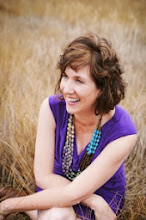Neutral Corner: Six Things I've Learned between Rounds of Editing My Manuscript
Someone just rang the bell on Round Two of editing my debut novel.
That someone was me.
I dragged myself to a neutral corner, where I'll wait for the bell to ring again, signalling the commencement of Round Three.
If you're wondering who won the last round, my manuscript is the one bleeding red ...
Sorry. Lousy editor humor.
And, truth be told, my publisher included a green colored pencil with my manuscript, along with strict "do not use anything but this pencil to make changes" instructions. I dubbed it my "magic" pencil and warned my family not to touch it.
Like a boxer in between rounds, I'm catching my breath and gathering my strength for getting back in the fight. I know there's another round of edits, and I want to be ready. I'm reviewing what I learned as I read through the copy editor's notes. (Think: trainer.) Why make the same mistake twice? Here's a few of my observations while I catch my breath in the neutral corner:
- Weasel Words can be invisible. We all have words we overuse. Mine are but and just. As a writer/editor, I focus on hunting down and killing those weasel words. However, the copy editor found them alive and well in my manuscript. Gasp! All I can figure is those blasted weasels were invisible.
- Saying, "I'm not an editor" is a cop-out. You are a writer. You expect someone else to edit your manuscript. Maybe it's someone in your critique group. Maybe you're banking on that sainted copy editor at your publishing house. Sorry. If you're a professional writer, this means you need a basic understanding of book editing. (Can you say Chicago Manual of Style?)
- It's okay to ask questions--but be nice about it. Even though I'm an editor, I didn't understand all the copy editor's marks on my manuscript. I also didn't understand why she changed some things. The solution? I asked questions. However, I'm aiming for a long-term relationship with Howard Books, my publisher. Alienating my copy editor isn't going to help me win friends and influence people. So when I asked questions, I started off by saying thank you for all the work she'd put into my manuscript.
- Know your publisher's style standards. Book publishing is governed by the Chicago Manual of Style (CMOS.) Is something italicized? Capitalized? Is the period inside the quote marks or outside the quote marks? Ask the great and wonderful Oz ... I mean, refer to CMOS. You also need to realize that publishers develop their own in-house style standards that may differ from CMOS. Find out.
- Invest in the necessary tools. I own two dictionaries: both the 4th and the 11th editions of Merriam-Webster's Collegiate Dictionary. Why? I use the 4th edition when I edit magazines. I found out that Howard Books uses the 11th edition. Time to double-up on dictionaries.
- Take editing one round at a time. Editing is tough. Exhausting. Sometimes you want to say, "That's good enough" and quit. But just like a prize fighter wants his gloved fist to be thrust in the air as he claims victory, you want to succeed. You want your book to be a winner. You need to go the distance, one round at a time. When the bell rings, go to your neutral corner. Rest up. Review you what you learned in the last round, and be ready to get out there when the bell rings again.
In Your Words: What's your attitude toward editing? Are you ready to jump in the ring and mix it up? Or do you hang on the ropes and wish someone else would fight for you? What tips would you add to my list?
Labels: editing, In My Words, six things I've learned
 In Others' Words
In Others' Words


 Follow Me on Twitter
Follow Me on Twitter



